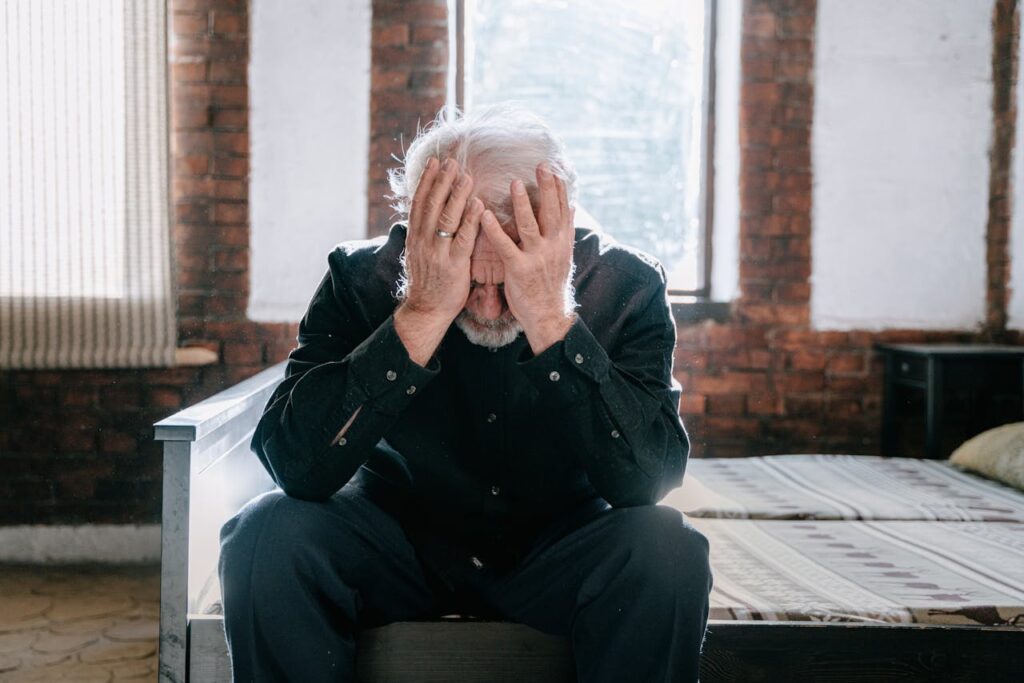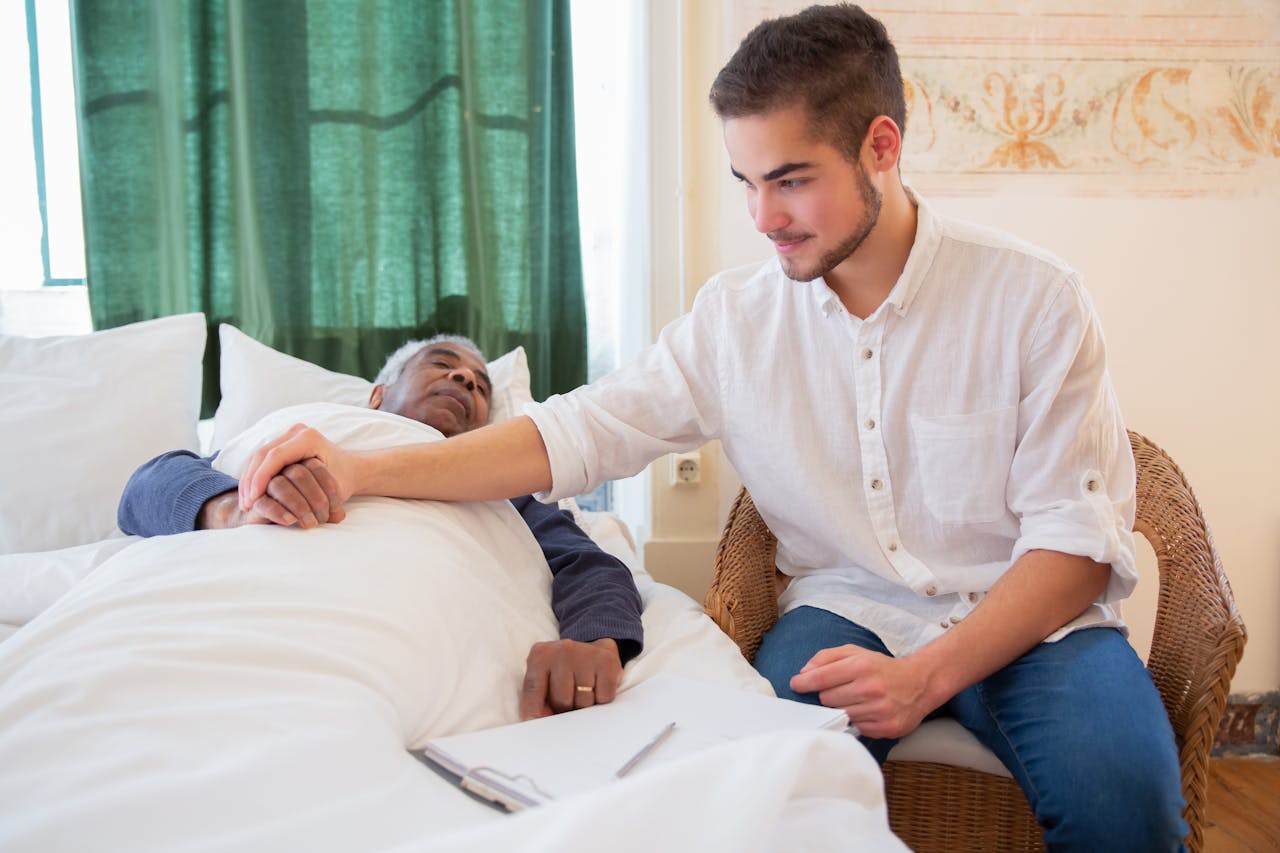What Not To Do When Grieving?
When grieving, avoid isolating yourself, as social support is crucial. Don’t suppress your emotions; allowing yourself to feel is essential for healing. Avoid using alcohol or drugs to numb the pain, as this can lead to further issues. Don’t rush the grieving process; everyone heals at their own pace. Avoid making major decisions, as grief can cloud judgment. Don’t neglect self-care; maintain a healthy routine. Avoid comparing your grief to others’; everyone’s experience is unique. Lastly, don’t hesitate to seek professional help if needed. Grief is a journey, and seeking support is a sign of strength, not weakness.

Grief and loss are inevitable parts of life, particularly as we age. Losing loved ones, experiencing significant life changes, and facing our own mortality can be profoundly challenging. However, there are strategies and resources that can help seniors navigate these difficult times. This article will explore various coping mechanisms and provide practical advice for dealing with grief and the emotional challenges of aging.
Understanding Grief and Loss
Grief is a complex emotional response to loss, often encompassing a wide range of feelings such as sadness, anger, confusion, and even relief. It’s important to understand that grief is a highly individual process; there is no “right” way to grieve, and each person’s experience is unique.
The Stages of Grief: Introduced by Elisabeth Kübler-Ross, the five stages of grief-denial, anger, bargaining, depression, and acceptance-provide a framework for understanding the grieving process. However, not everyone experiences all these stages or in a specific order. These stages can help normalize the experience, allowing individuals to recognize that their feelings are part of a natural process.
Types of Loss: Loss can take many forms, not just the death of a loved one. It can include the loss of a relationship, job, health, or independence. Understanding the type of loss can help in addressing the specific emotions and challenges associated with it.
Emotional and Physical Impact: Grief can manifest in both emotional and physical symptoms. Emotionally, one might feel overwhelmed, numb, or disconnected. Physically, grief can lead to fatigue, changes in appetite, and sleep disturbances. Recognizing these symptoms can help individuals seek appropriate support and self-care.
Strategies for Coping with Grief
1. Seek Support:
- Family and Friends: Lean on your loved ones for emotional support and companionship.
- Support Groups: Join local or online grief support groups to share your experiences with others who understand.
2. Professional Help:
- Therapists and Counselors: Professional guidance can provide personalized strategies and a safe space to express your feelings.
- Grief Coaches: These specialists focus on helping individuals navigate the complexities of grief.
3. Engage in Healthy Activities:
- Physical Exercise: Regular exercise can improve mood and overall health.
- Creative Outlets: Art, music, and writing can serve as powerful tools for expressing and processing emotions.
- Mindfulness and Meditation: These practices can help you stay grounded and manage stress.
4. Create a New Routine:
- Establish Structure: A daily routine can provide a sense of normalcy and control.
- Set Goals: Focus on small, achievable goals to regain a sense of purpose.
5. Remember and Honor Your Loved Ones:
- Memorial Activities: Create a scrapbook, plant a tree, or participate in an activity they enjoyed.
- Rituals and Ceremonies: Attend memorial services or hold personal ceremonies to honor their memory.
Dealing with the Emotional Challenges of Aging
1. Accept and Adapt to Change:
- Flexibility: Embrace change as a part of life and look for positive aspects in new situations.
- Lifelong Learning: Engage in new hobbies, classes, or volunteer work to stay mentally active and connected.
2. Stay Socially Connected:
- Community Involvement: Participate in community events, clubs, or organizations.
- Technology: Use video calls and social media to maintain connections with distant friends and family.
3. Focus on Physical Health:
- Regular Check-ups: Stay on top of medical appointments and screenings.
- Healthy Lifestyle: Maintain a balanced diet, get adequate sleep, and exercise regularly.
4. Foster a Positive Mindset:
- Gratitude Practice: Keep a journal to reflect on positive experiences and things you are thankful for.
- Positive Affirmations: Use affirmations to reinforce a positive outlook on life.
5. Prepare for the Future:
- Legal and Financial Planning: Ensure that your will, power of attorney, and healthcare directives are in order.
- Legacy Planning: Consider what you want to pass on to future generations, be it wisdom, values, or tangible assets.
Stages of Grief
| Stage | Description |
|---|---|
| Denial | Shock and disbelief, unable to accept the loss, feeling numb. |
| Anger | Frustration and helplessness, may be directed at oneself, others, or the situation. |
| Bargaining | Trying to make deals with a higher power to reverse or lessen the loss, dwelling on “what if” scenarios. |
| Depression | Deep sadness, despair, withdrawal from activities and relationships, feeling overwhelmed. |
| Acceptance | Coming to terms with the loss, finding ways to move forward, experiencing a sense of peace. |
These stages are not necessarily experienced in a linear order, and individuals may revisit stages or experience them simultaneously.
Conclusion
Coping with grief and loss is a deeply personal journey, but you don’t have to navigate it alone. By seeking support, engaging in healthy activities, and fostering a positive mindset, seniors can find ways to honor their loved ones and continue to live meaningful, fulfilling lives. Remember, it’s okay to seek help and take things one day at a time.
Related Articles

What is Palliative Care?
Palliative care is a specialized medical care approach focused on providing relief from the symptoms and stress of a serious illness.

Understanding Assisted Living
Assisted living provides older adults with a residential option that combines housing, personal care, and health services.

Introduction to Nursing Homes
Assisted living offers daily support and independence; nursing homes provide 24/7 medical care;

Benefits of Yoga for Seniors
Discover how yoga can enhance flexibility, balance, and mental well-being





